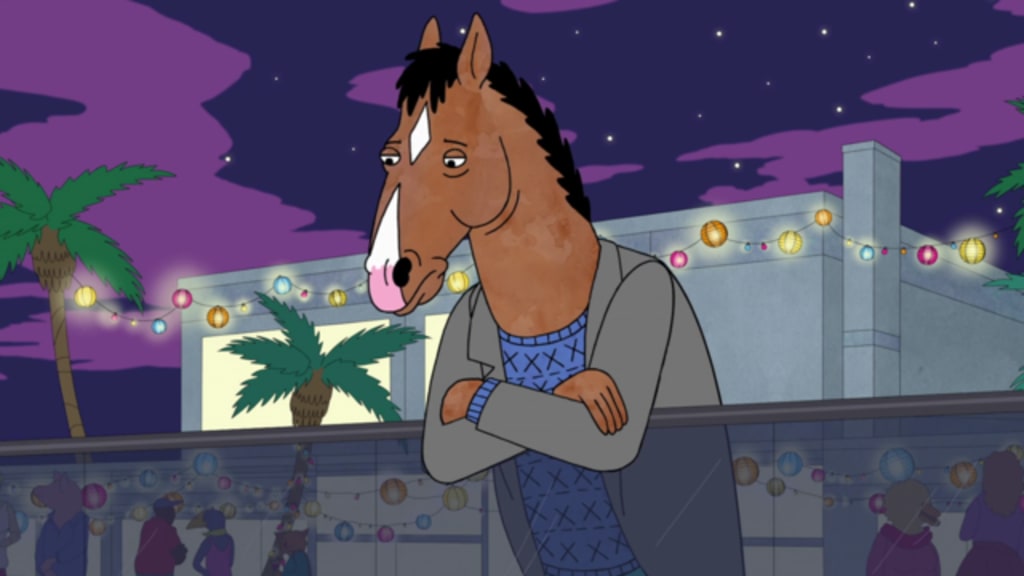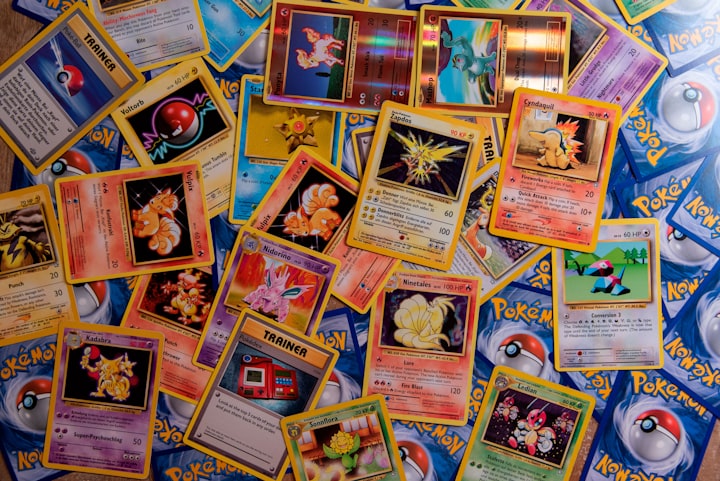Is Bojack Horseman an allegory of Tennessee Williams?
Bojack Horseman is one of the most important television shows in recent years. The absurdist humour of its animal/human hybrid world allows the show to present a number of very real issues while remaining, at heart, a comedy show; with topics such as dementia, suicide, mental illness, the corruption of Hollywoo(d) and drug abuse covered throughout the show so far, Bojack Horseman is a wholly satirical yet realistic show.

Though much of the satire throughout the series can easily be traced back to real life (for example, Mr Peanutbutter's campaign for governor being a parody of Trump's presidential run), a perhaps more subtle yet still remarkably clear allegory throughout the show's existence is the striking similarities between Bojack Horseman and the life and works of Tennessee Williams.
First of all, a number of real life people who featured in Williams' life and career have their own counterparts on Bojack Horseman. Early on in his career, Tennessee Williams found great support from director Elia Kazan, who directed a number of his works - including A Streetcar Named Desire - and helped launch Williams into fame. The two became close friends until a sudden, unexplained fall out a few years later. This friendship holds a number of similarities to Bojack's friendship with Herb Kazzaz, a writer and director who helped Bojack achieve fame early on in his career (and whose name could be an allusion to Kazan). Throughout Season 1, Bojack and Herb's friendship is explored, as is their inevitable fall out once both had achieved fame. Ultimately, we see Bojack choose the fame of Horsin' Around over his friendship with the man who got him that fame in the first place, favouring the fantasy of celebrity and acting over the reality of friendships. This again holds similarity to Williams' relationship with Kazan, who said later of Williams
"Everything in his life is in his plays, and everything in his plays is in his life."
This fixation on his own work, and an inability to separate his characters from himself is a classic characteristic that we see presented in Bojack again and again. The parts that Bojack plays are not simply acting roles for him; they become an extension of himself, representative of characteristics he wishes to possess himself - The Horse in Horsin' Around represents the loving family life Bojack wishes he had growing up, and Secretariat represents the hero Bojack always looked up to, and wished to be like his entire life. Bojack's obsession with these fantasies is evident in his constant rewatching of Horsin' Around at any given time.
Bojack's self destructive relationship with Sarah Lynn also holds similarities to Williams' reality. His 14 year relationship with the younger Frank Merlo was both caring and tempestuous, with many issues of codependency and drug abuse. Williams was entirely emotionally dependant on Merlo, fearing that without his support, he would go insane and plunge into a deep depression. While Bojack has a number of unhealthy relationships, his friendship with Sarah Lynn consistently presents itself as a relationship based entirely on alcohol and drug fuelled benders, and a codependency based on their understanding of one another's experiences. Bojack seems to believe that Sarah Lynn is one of the few people who truly understands him, and they constantly enable each other's addictions until Sarah Lynn's heartbreakingly young death. Likewise, Merlo and Williams were also guilty of enabling each others addictions, causing Merlo's untimely death which span Williams into a deep depression. When Sarah Lynn dies at the end of Season 3, we see Bojack slip into a deep depression, abandoning his life in Hollywoo completely, evidently to avoid reminders of Sarah Lynn and to distract from his now lack of dependency on Sarah Lynn.
Aside from these allusions to real life relationships of Tennessee Williams, the character of Bojack Horseman holds many similarities to Tennessee Williams's persona.
Bojack's unhealthy relationship with his parents - particularly his mother Beatrice - is a recurring theme throughout the show. It is established repeatedly that Beatrice views Bojack as a disappointment to her - "You know, I was beautiful before I got pregnant." - and it is implied that much of Bojack's thirst for fame is due to this emotional abuse, both as a way to prove his mother that he is worth something, and as a method of attaining the love he so craved as a child. Likewise, Williams' childhood was marred by parents who expressed many times that he was a disappointment, and were both emotionally and physically abusive, a theme that would later be found throughout his works. His distance from his parents was a constant struggle throughout his life, and possibly caused much of his dependency on alcohol, yet another similarity to Bojack.
Williams also appeared to possess nihilistic and pessimistic view on life, and even his own work and celebrity. Many of his melancholic quotes hold great similarity to the views expressed by Bojack throughout the show. Williams spoke of a discord between his reality and fantasy, inserting a dry humour into his nihilistic life view despite the fact that he was discussing a ver dark topic;
“There comes a time when you look into the mirror and you realise that what you see is all that you will ever be. And then you accept it. Or you kill yourself. Or you stop looking in mirrors.”
This quote is so similar to those found throughout Bojack Horseman that it could quite easily have been lifted from the show itself.
"Y'know, sometimes I feel like I was born with a leak, and any goodness I started with just slowly spilled out of me, and now it's all gone and I'll never get it back in me. It's too late."
Both Williams and Bojack appear to be greatly affected by their unhappy childhoods, which later manifests itself in addictions, artistry and a deep self loathing and distain for the world around them. This mistrust of their own celebrity and those who helped them gain it is yet another similarity between the two. The theme of Hollywoo(d)'s corruption is at the heart of Bojack Horseman, and Bojack's twisted view of his own celebrity and what that makes him as a person is both frightening and fascinating;
"Every one of you is just out to get me because I'm famous and so well-adjusted"
This suspicion of the world of celebrity is yet another self destructive characteristic displayed by Bojack, who so craves fame and adoration, and yet does nothing to help himself in term of relationships with lovers, friends and coworkers alike, deluding himself that fame is the most important thing in his life. Similarly, Tennessee Williams expressed a great mistrust of critics, especially later on in his career. Speaking to his friend Elliot Martin upon the release of his play The Two-Character Play (1967), Williams stated
“I want to warn you...the critics are out to get me. You’ll see how vicious they are. They make comparisons with my earlier work, but I’m writing differently now”
Just like Bojack at the point we meet him in Bojack Horseman, Williams was at the later point of his career, past the heyday of A Streetcar Named Desire, and was concerned with no longer living up to the work that had brought him such success. He wished to produce different work, to shift the artistry of his plays, but was apprehensive that this would be misunderstood by the critics, and so acted out by expressing fears that they were 'out to get him'. This again reflects Bojack's wish to do 'more' with his career later on in life, having gained fame with comedy in Horsin' Around, but later wishing to be taken seriously with his role in Secretariat.
Tennessee Williams and Bojack Horseman share a startling amount of similarities; both present evidence of trauma due to their unhappy childhoods, trauma that is ignored through the abuse of alcohol, drugs and sex in an unhealthy pattern that only exacerbates their preexisting mental health issues. Both express a mistrust of the world of celebrity, the very world that gave them everything they desired, and allows them to be artists. Both have a complex history of unhealthy relationships, codependent relationships that only enabled their issues further despite the fact they felt it was their only support, and friendships that self destructed once their convenience was no longer convenient.
Though there is no evidence whatsoever that the creators of Bojack Horseman mean it in anyway to be an homage to the life and works of Tennessee Williams, for a show that has so many niche references to pop culture and the wider world of celebrity, it would not come as a surprise. In Williams' play The Glass Menagerie, a glass unicorn is bumped off a table, breaking his horn and rendering him nothing more than a broken horse. Bojack Horseman is, ultimately, a show about nothing more than a broken horse.
About the Creator
Fern Wigfield
I make adventures happen at Merlin Entertainments | A coffee addict who owns too many books | “Without stories, we wouldn't be human beings at all”







Comments
There are no comments for this story
Be the first to respond and start the conversation.